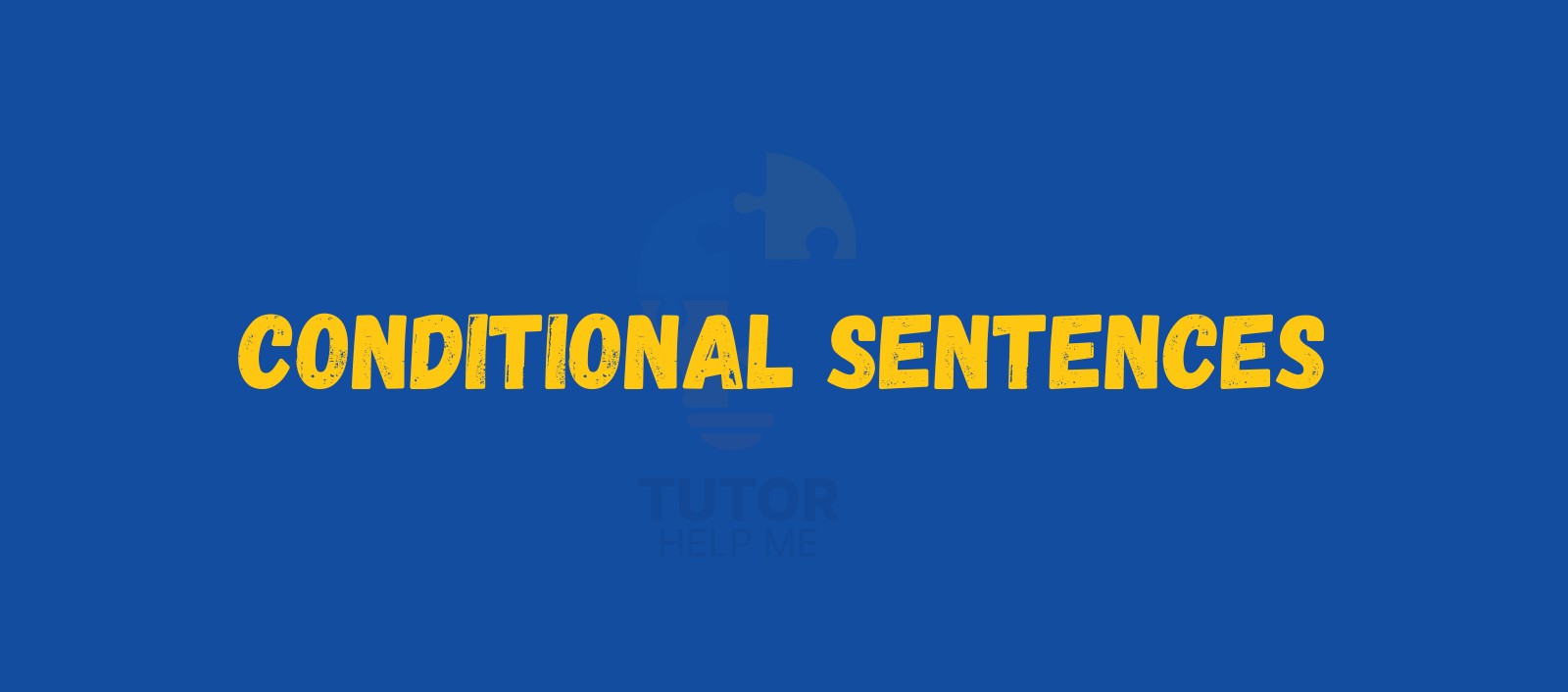Conditional sentences describe situations that depend on a condition. They often use “if” and talk about cause and effect.
From real-life actions to imaginary outcomes, conditionals help us explain what could happen, might happen, or could have happened.
In this blog, you’ll learn the meaning of conditional sentences, the 4 main types, and how to use each with examples.
What Is a Conditional Sentence?
A conditional sentence is a sentence that shows a condition and its result. It usually has two parts:
- The “if” clause (condition)
- The main clause (result)
Example:
- If it rains, we’ll stay inside.
“Learn English Grammar with our 1-On-1 English Tutors.”
Types of Conditional Sentences
There are four main types of conditional sentences in English.
Zero Conditional
Used for facts, habits, and general truths. Both clauses use the present simple tense.
Form:
If + present simple, present simple
Examples:
- If you heat water, it boils.
- If you touch fire, it burns.
- If it rains, the ground gets wet.
- If I am late, my boss gets angry.
- If you drop ice in the sun, it melts.
First Conditional
Used for real and possible situations in the future.
Form:
If + present simple, will + base verb
Examples:
- If it rains, I will take an umbrella.
- If she studies, she will pass the exam.
- If you hurry, you will catch the bus.
- If they invite me, I will go.
- If I feel better, I will join you.
Second Conditional
Used for imaginary or unlikely situations in the present or future.
Form:
If + past simple, would + base verb
Examples:
- If I won the lottery, I would travel the world.
- If she had more time, she would learn Spanish.
- If I were you, I would say sorry.
- If we lived near the beach, we would swim every day.
- If he worked harder, he would succeed.
Third Conditional
Used to talk about the past and things that did not happen.
Form:
If + had + past participle, would have + past participle
Examples:
- If I had studied, I would have passed the test.
- If it had rained, we would have stayed inside.
- If she had told me, I would have helped.
- If they had invited us, we would have gone.
- If he had left earlier, he wouldn’t have missed the train.
Why Choose TutorHelpMe?
Expert Tutors – Our qualified and experienced tutors simplify even the most difficult concepts.
Personalised Lessons – One-on-one sessions tailored to each student’s pace and goals.
Flexible Scheduling – Learn anytime, from anywhere, with online convenience.
Subject Mastery – English, Maths, Science, and more—support across all key subjects.
Homework & Exam Help – Focused guidance to improve performance and confidence.
Affordable Pricing – Quality tutoring that fits your budget.
Progress Tracking – See real improvement with monthly feedback and support.
Conclusion
Conditional sentences help us talk about real situations, possibilities, and past regrets. Each type follows its own structure and shows a different level of possibility or time. Mastering them will improve your grammar, writing, and speaking skills.
Practice using each type in real examples, and soon they’ll feel natural in your communication.
Read More What Are Exclamatory Sentences? Types and Use with Examples
FAQ’s
What verb tense is used in zero conditional?
Both the “if” clause and the main clause use the present simple tense in zero conditional.
What is the zero conditional used for?
Zero conditional is used to express facts, habits, or general truths that are always true under specific conditions.
What tense is used in first conditional sentences?
The “if” clause uses present simple, and the main clause uses will + base verb for future results.
What verb tense is used in third conditional?
Use past perfect in the “if” clause and would have + past participle in the main clause.
Can we change the order of the clauses?
Yes. You can start with either the “if” clause or the main clause. The meaning stays the same.
Can conditional sentences be negative?
Yes. Just add “not” in the appropriate place. Example: If he didn’t study, he wouldn’t pass.

